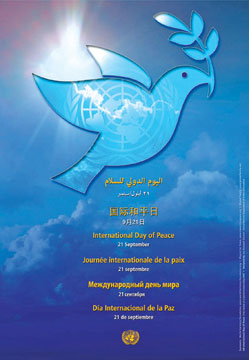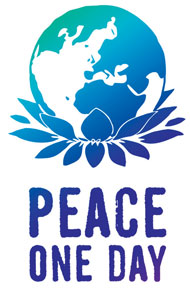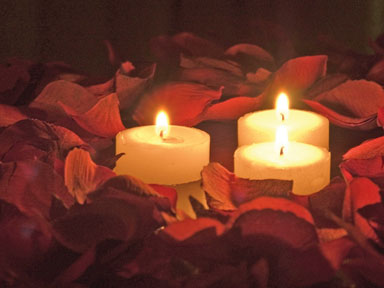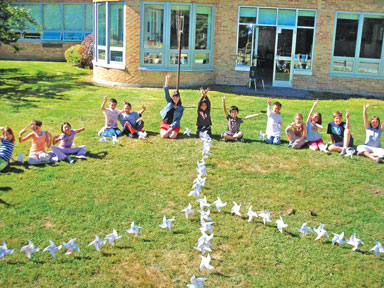|
This year's theme - Peace and Democracy:
Three decades of World Peace Day
By Pramod DE SILVA
  Peace, everyone wants it, but only a few find it. In a world torn
apart by conflict and war, peace is the ultimate goal. Sri Lankans are
now experiencing peace after almost 30 years and the world over, there
are millions of people who still yearn to experience it. Yet, it is not
easy to achieve. Peace, everyone wants it, but only a few find it. In a world torn
apart by conflict and war, peace is the ultimate goal. Sri Lankans are
now experiencing peace after almost 30 years and the world over, there
are millions of people who still yearn to experience it. Yet, it is not
easy to achieve.
Peace is not only the absence of war or conflict – it is very much a
state of mind. The seeds of peace should first be planted in our hearts.
It is only through such a collective effort that peace can be
established everywhere.
This is the aim of the International Peace Day, which falls every
year on September 21. This year’s Peace Day is especially significant,
as it marks the 30th anniversary of the Peace Day concept launched by
the United Nations in 1981, although Peace Day was actually celebrated
only from 1982.
President of the Kyung Hee University of South Korea Young Seek Choue
proposed the idea for a Peace Day at a conference of the International
Association of University Presidents held in San Jose, Costa Rica, in
1981. The proposal was presented by Costa Rica and endorsed by the 36th
session of the UN General Assembly on November 30 1981, in resolution
36/67. However, it was only in 2002 that September 21 was declared
International Peace Day on a permanent basis.
"Peace Day should be devoted to commemorating and strengthening the
ideals of peace both within and among all nations and peoples. This day
will serve as a reminder to all peoples that our organisation, with all
its limitations, is a living instrument in the service of peace and
should serve all of us here within the organisation as a constantly
pealing bell reminding us that our permanent commitment, above all
interests or differences of any kind, is to peace." (UN Peace Day
resolution)
Ideals of peace
The UN General Assembly has declared this as a day devoted to
strengthening the ideals of peace, both within and among all nations and
peoples. Individuals too can make a positive contribution to make peace
in addition to governments and warring factions. However, peace cannot
exist or work in isolation. It needs several other requirements such as
freedom and democracy to thrive.
Indeed, the theme for this year’s International Day of Peace (also
known as World Peace Day) reflects this intimate bond - “Peace and
Democracy: Make Your Voice Heard”.
It goes without saying that peace and democracy are inextricably
linked. Together, they form a partnership that promotes the well-being
of all. Embodied in the Universal Declaration of Human Rights, democracy
supports an environment for a host of political rights and civil
liberties. This year’s theme is thus a call for peace as well as
democracy. Yes, even the simple act of casting your vote at an election
is an expression of one’s faith in democracy and peace. A vote is a
powerful ‘voice’ in a democracy.
 There is a healthy debate in our country on the best ways that the
peace momentum can be maintained and reconciliation among different
segments of the population achieved. A Parliamentary Select Committee
(PSC) will be established to evolve a political solution acceptable to
all communities in the country. This can be described as a fine example
for the intricate link between peace and democracy. There is a healthy debate in our country on the best ways that the
peace momentum can be maintained and reconciliation among different
segments of the population achieved. A Parliamentary Select Committee
(PSC) will be established to evolve a political solution acceptable to
all communities in the country. This can be described as a fine example
for the intricate link between peace and democracy.
Importance of democracy
The holding of elections in the North after the defeat of terrorism
also indicates the importance of democracy to a culture of peace. This
is thus an ideal opportunity for citizens to apprise MPs about their own
ideas for lasting peace and reconciliation; they in turn can present
such ideas to the PSC.
UN Secretary General Ban Ki -moon, in his message on World Peace Day
2011, also reminds us of the connection between peace and democracy.
“Peace is our mission; our day-to-day quest. Democracy is a core value
of the United Nations. It provides channels for resolving differences.
But democracy does not just happen; it has to be nurtured and defended.
The world needs you to speak out.”
Incidentally, he opened the “Give Peace Another Chance” symposium in
observance of the annual International Day of Peace last Wednesday,
where these points were stressed.
On Peace Day itself, the "Peace Bell" will be rung at UN Headquarters
in New York City. The bell is cast from coins donated by children from
all continents. It was given as a gift by the United Nations Association
of Japan, and is referred to as "a reminder of the human cost of war."
The inscription on its side reads: "Long live absolute world peace."
Individuals can wear White Peace Doves to commemorate the
International Day of Peace. Some communities will also release live
white doves, a symbol of peace, to signify peace efforts.
Advocates of peace are already looking forward to one significant
event next year: For Peace Day 2012, several organisations around the
world are calling for and working towards a Global Truce - a day of
ceasefire and non-violence observed by all sectors of society globally.
It is hoped that this will be the largest reduction in global violence
in recorded history internationally.
It need not necessarily be a big event. One can light a candle for
peace or meditate thinking about the serenity of peace. One can make
peace with personal enemies, resolve disputes at work or home or join a
group that works for peace. After all, peace begins at home. Such
individual efforts, magnified on a global scale, can and do make a
difference. We tend to think that achieving peace is difficult, but it
can start on a simple note too.
Role of religions
Religions can also play a major role in spreading peace. All
religions advocate peace and urge their followers to work for it.
Unfortunately, there are misguided elements who misuse religion for
violent purposes. Religious leaders have an obligation to step in and
stop such tendencies.
At town or village level, religious leaders can spread the message of
peace among their congregations. They can step in to settle personal
disputes as well. Above all, religious schools can produce a generation
of youth who aspire for peace.
 |
|
Children at a Peace Day
event |
It is vital that everyone from students to world leaders aspires for
peace. There still are around 20 major conflicts around the world, with
an average of 500 deaths each annually although there has been a drop in
the number of armed conflicts since the 1980s. While some of them are
widely known, many others go unnoticed by the world’s media.
Most, if not all, of these conflicts are in the developing world in
Africa, Asia and South America. There are also instances of military
interventions by superpowers in several countries which have brought
disastrous consequences for the people of those countries.
Apart from conflicts per se, another dangerous trend is the
escalation of terrorist attacks in some parts of the world. As we have
experienced ourselves, situations of strife and terrorism in developing
countries can devastate their economies and shatter the lives of
ordinary people from a child recruited as a soldier by a terror group to
a worker who dies in a bomb explosion.
Wars and conflicts lead to more poverty and deprivation of basic
human rights.
It has been shown that the biggest death tolls do not come from
actual fighting, but from war-exacerbated disease and malnutrition.
Peace and democracy are often the first casualties of these conflicts.
Thus, resolving these conflicts is essential for these countries and
regions to develop and prosper.
This Peace Day and next year’s planned Global Truce could truly
transform the world if there is a genuine determination to bring peace
and democracy to conflict-ridden parts of the globe. That should be the
wish of all those who desire peace. A world free of strife would mean a
better life for all its seven billion inhabitants.
|

